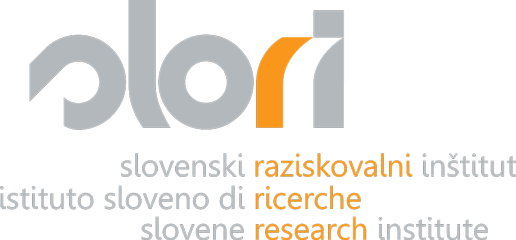Norina Bogatec
Project promoters: Municipality of Zgonik – Sgonico (coordinator), Municipality of Devin Nabrežina – Duino Aurisina, Municipality of Repentabor – Monrupino, Municipality of Dolina – San Dorligo della Valle, Municipality of Sežana and Municipality Hrpelje-Kozina. Project performer: SLORI (responsible person: Norina Bogatec)
The project Educational and employment paths for the youth of the cross-border area was financed by the Region Friuli Venezia Giulia with the Regional fund for the Slovenian linguistic minority, which, among other things, promotes cross-border cooperation in the cultural, educational, sports and recreational fields. The objective of the research project was to obtain an educational and professional profile of the younger generation living in the considered cross-border area and to outline its habits as regards spare time and cross-border mobility. The research work is focused on the dynamics of the passage from youth to adulthood in an area characterised by two different educational and employment systems.
The project is in line with the guidelines and findings of two European documents on the youth question. In the first one – The White Paper, A New Impetus for European Youth (Brussels, 2001) – the need for a better understanding of the youth’s position is defined as one of the four priority fields along with participation, information and volunteering. The second one – Communication of the Commission to the European Parliament, European Council, European Social and Economic Committee and to the Committee of the Regions Promoting young people’s full participation in education, employment and society (Brussels, 2007) – highlights the need for better research starting-points as to create adequate policies for young generations.
The subject of the analysis was the young generation born between 1981 and 1985 with residence in the aforementioned Municipalities. The age group is that of young adults (Rakar, Boljka, 2009), which is highly differentiated in terms of educational, employment and personal experiences.
The data were gathered with a structured questionnaire that will be administered in the form of a telephone interview. The research project was based on the method of retrospective studies, which allows the gathering of data in a time span that starts with a specific initial event – in our case the end of compulsory schooling – and ends with the administration of the questionnaire. 586 young citizens were surveyed, equally on each side of the border.
Research results were published and presented to the project promoters and other public and private bodies and organisations that operate both in the narrower and wider context. The aim is to enrich the discussion on the promotion of the intellectual and professional potential of the Municipalities considered, from a “cross-border” viewpoint on the development perspectives and the valorisation of the Carso.
